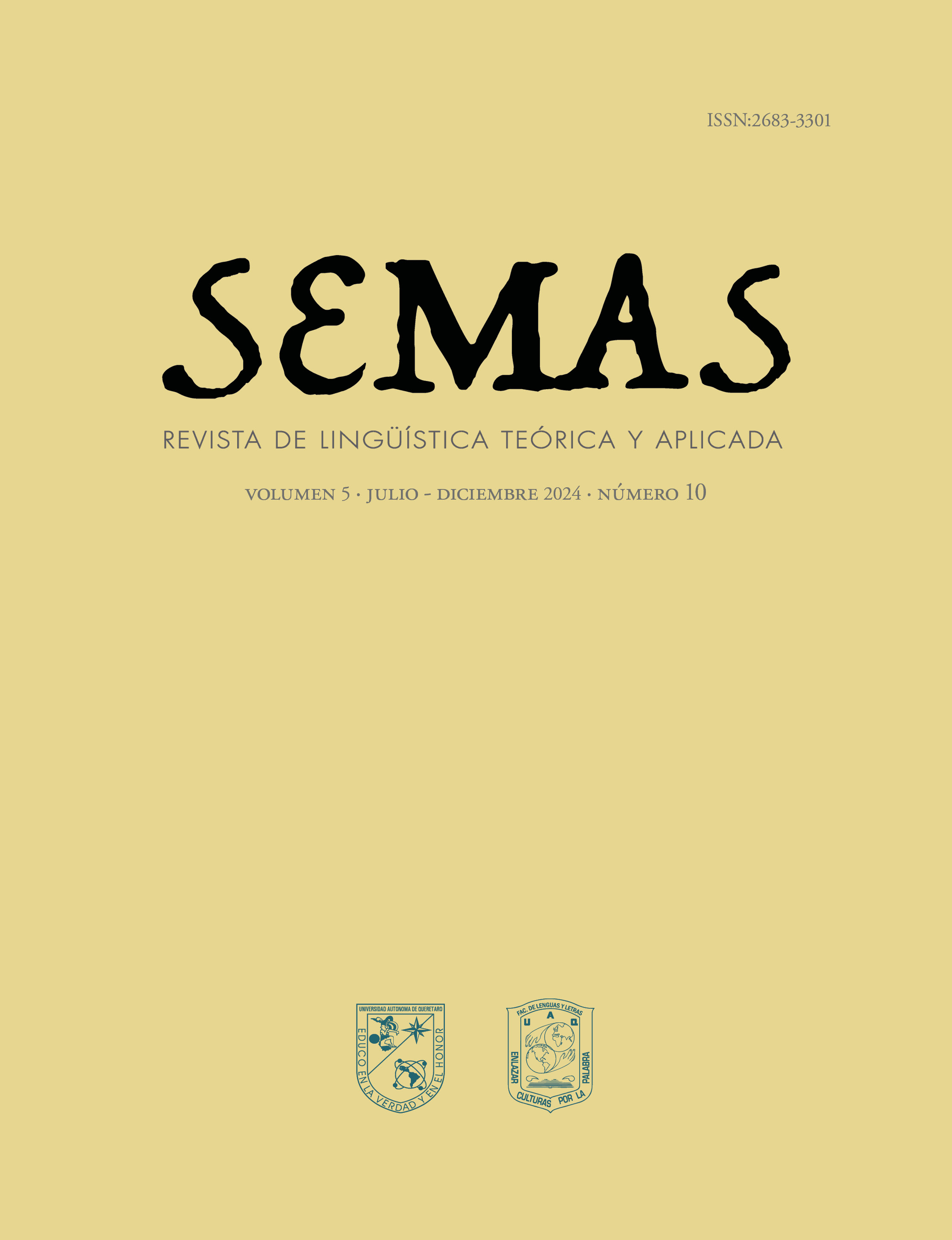Abstract
The concepts of linguistic ideologies and attitudes have been crucial for explaining the linguistic behaviors of individuals and social groups. This study will analyze the role of language in power relations and the importance of ideologies on discourse, focusing on two novels about Mexican immigration and three Spanish-language newspapers published in Texas during the first half of the 20th century. Through these printed publications, I will examine how the linguistic ideologies that emerged in southwestern communities at the beginning of the last century are reflected in the literary and journalistic production of the time. The analysis reveals that bilingual speech is depicted negatively in the printed discourse and evokes, since the early 20th century, ideas about “what is correct” and “what is pure”, alongside notions concerning the role of language in shaping national, cultural and linguistic identities.
References
Alvarado Paves, G. E. (2020). “Ideologías lingüísticas del español en comunidades y páginas de Facebook: Políticas de lengua e identidad social en Chile contemporáneo”. Doxa Comunicación, 31, pp. 265-281.
Alvord, S. M. y Thompson, G. L. (2020). Spanish in the United States: Attitudes and variation. London: Routledge.
de Arnoux, E. N. y del Valle J. (2010). “Las representaciones ideológicas del lenguaje: Discurso glotopolítico y panhispanismo”. Spanish in Context, 7(1), pp. 1-24.
Baeza Ventura, G. (2006). La imagen de la mujer en la crónica del “México de afuera”. Ciudad Juárez: Universidad Autónoma de Ciudad Juárez.
Barnes, H. (2017). “Language ideologies in an immigrant language setting: The case of a European language in Mexico”. Caribbean Studies, 45(1/2), pp. 21-41.
Bastardín Candón, T. (2020). “Creencias y actitudes lingüísticas sobre las hablas andaluzas en la prensa de mediados del siglo xix”. Boletín de Filología, 55(2), pp. 285-310.
Bullock, B. E. y Toribio, A. J. (2009). “Themes in the study of code switching”. En B. Bullock y A. J. Toribio (Eds.), The Cambridge handbook of linguistic code-switching (pp. 1-17), Cambridge: Cambridge University Press.
Casielles-Suárez, E. (2017). “The hybrid voice of Latinos in the United States”. Atlantis, 39(2), pp. 147-168.
Cavanaugh, J. R. (2004). “Remembering and forgetting: Ideologies of language loss in a Northern Italian town”. Journal of Linguistic Anthropology, 14(1), pp. 24-38.
Curzan, A., Robin, M. Q., VanEyk, K. y Weissler, R. E. (2023). “Language and social justice in the United States”. Daedalus, 152(3), pp. 18-35.
De León, A. (1999). Mexican Americans in Texas: A brief history. Wheeling: Harlan Davidson, Inc.
Dennison, C. (2010). “‘México de afuera’ in Northern Missouri: The creation of porfiriato society in America’s heartland”. Rupkatha Journal on Interdisciplinary Studies in Humanities, 2(3), pp. 256-267.
Deveraux, M. y Wheeler, R. (2012). “Code-switching and language ideologies: Exploring identity, language and society in dialectically diverse literature”. The English Journal, 102(2), pp. 93-100.
Doerr, N. M. (2015). “Standardization and paradoxical highlighting of linguistic diversity in Japan”. Japanese Language and Literature, 49(2), pp. 389-403.
Edwards, J. (2009). Language and identity. Cambridge: Cambridge University Press.
Emerick, M. y Goldberg, J. (2023). “‘I would purposely keep them separated’: Language ideologies, language policy, and beliefs about emergent bilinguals in career and technical education”. Tesol Quarterly, 57(4), pp. 1339-1363.

This work is licensed under a Creative Commons Attribution 4.0 International License.
Copyright (c) 2024 Semas


